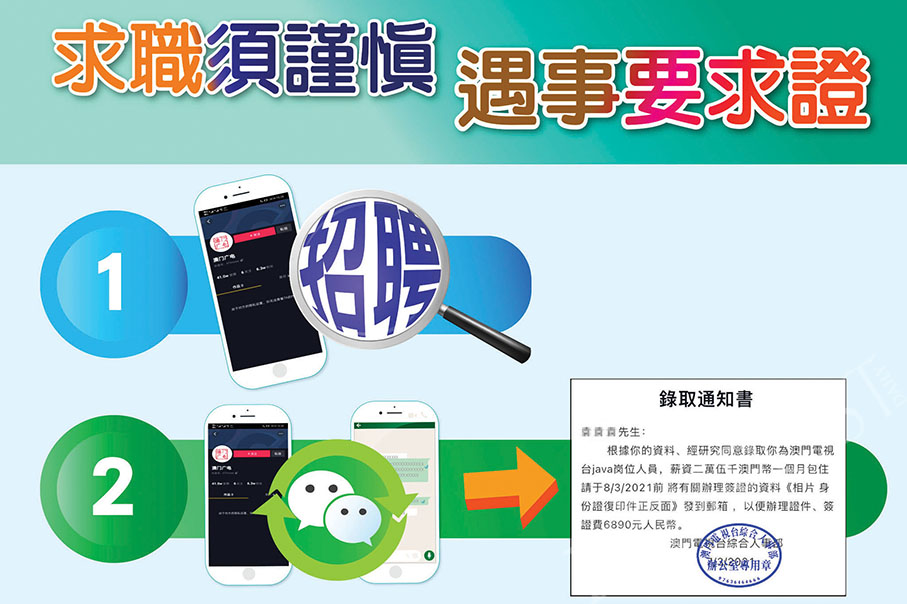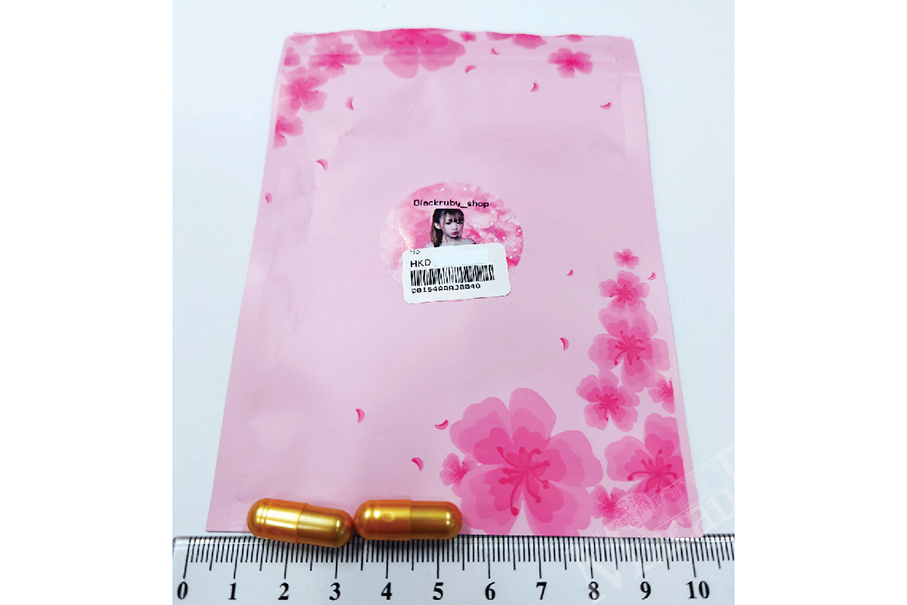Addressing yesterday’s regular press conference about Macau’s novel coronavirus situation, Tai Wa Hou, a clinical director of the public Conde de São Januário Hospital Centre, pledged that the Macau government will not let its guard down in COVID-19 prevention by continuing with its novel coronavirus prevention strategy of guarding against imported cases and the possibility of new locally transmitted cases.
Tai made the remarks when replying to a question by a reporter from Xinhua who asked him to summarise Macau’s COVID-19 prevention and control work after President Xi Jinping praised the Macau government’s effective prevention and control of the novel coronavirus by sticking to the “dynamic zero-COVID” (動態清零) policy when meeting Chief Executive Ho Iat Seng in Beijing on Wednesday.
Tai said that Xi’s remarks have fully acknowledged Macau’s achievements in its fight against COVID-19 and have encouraged all those working on the frontline against COVID-19.
Tai said that with the strong support of the central government and the mainland’s health authorities and under Ho’s leadership, the local government has implemented timely and decisive measures against COVID-19 in its cooperation with various segments of Macau’s civil society.
Tai said that although Macau has occasionally reported new local cases since the COVID-19 pandemic started almost two years ago, the local government had been able to completely cut the local transmission chain of the novel coronavirus within a short period of time thanks to its decisive measures every time, which effectively curbed the spread of the disease each time.
The achievements have indicated that the local government has always been striving to achieve the “dynamic zero-COVID” policy aim, Tai said, adding that Macau has been able to maintain the normal cross-border movement of people with the mainland. Tai underlined Macau’s “hard-won phased” achievements in its COVID-19 prevention and control work.
Tai pledged that the local government will continue sticking to its COVID-19 prevention strategy of guarding against imported cases and the possibility of new locally transmitted cases.
“Dynamic zero-COVID” is a strategy that has been successfully practised by the National Health Commission (NHC).
Tai underlined that the local government will continue ensuring its good performance in its normalised COVID-19 prevention and control work in various aspects, such as measures carried out in the community and at the city’s border checkpoints, and the diagnosis and treatment of the novel coronavirus disease.
Tai said that Macau has trained 1,000 additional health workers capable of taking swab samples for COVID-19 nucleic acid tests (NATs), with the aim of enabling, if necessary, the next possible round of citywide mandatory COVID-19 tests to be carried out more quickly.
Pointing out that Macau’s COVID-19 vaccination rate now exceedss 70 percent, Tai said that for its COVID-19 inoculation work in the near future, the local government will put special emphasis on promoting the administration of booster shots and increasing the jab rates among senior citizens and children.
Public Health Clinical Centre’s upgrade
In addition, Tai said, the Macau Health Bureau (SSM) has been upgrading the facilities in its Public Health Clinical Centre in Coloane with the aim of enhancing its capability in the diagnosis and treatment of the novel coronavirus disease. After the upgrade, Tai said, the Public Health Clinical Centre will be completely converted to an infectious disease hospital.
In addition to a quarantine facility for COVID-19 high-risk people, the Public Health Clinical Centre has also been used for treating COVID-19 patients, including asymptomatic ones.
Tai also pledged that the Macau government will further improve its mechanism on responding to major public health incidents. In addition, Tai said, the local government will ensure its objective of always achieving “dynamic zero-COVID” by being able to detect novel coronavirus cases early in its epidemiological monitoring work so that health officials are able to stem the spread of the disease early.
Contact-tracing-function QR codes at govt premises
Meanwhile, the Public Administration and Civil Service Bureau (SAFP) has announced a new measure to promote the use of the Macau Health Code mobile app’s contact tracing function, according to which from January 4 residents will be “reminded” to scan the contact-tracing-function QR codes with their smartphones when entering the government’s public service facilities.
The Health Bureau rolled out the mobile app version of the Macau Health Code that contains a contact tracing function last month. The new contact tracing function enables residents to record their whereabouts accurately, which will help health officials in their epidemiological investigations in case the city is hit by new local COVID-19 cases.
Initially, after the Macau Health Code mobile app was launched around the middle of last month, the contact-tracing-function QR codes were only available at public medical institutions, namely the public Conde de São Januário Hospital Centre, public health centres and health stations, and other Health Bureau facilities. The use of the contact tracing function was extended to all government premises and facilities and public buses early this month, before it was also extended to all social service facilities early this week.
The website version of the Macau Health Code remains operational, which means that currently smartphone users can choose to continue using the website version or switch to the mobile app version, when generating their health code. However, the new contact tracing function is only available on the mobile app version, as mobile web browsers are unable to scan a QR code.
In a statement on Wednesday, the Public Administration and Civil Service Bureau (SAFP) said that it has ordered all public entities to promote the use of the Macau Health Code mobile app’s contact tracing function, a new measure that will start on January 4, with the aim of cooperating with the Health Bureau for Macau’s COVID-19 prevention work, as long as the new measure will not affect the smooth provision of public services for residents.
According to Wednesday’s SAFP statement, all public entities will “remind” residents who enter their respective public service facilities to scan the contact-tracing-function QR codes. The staff members at the facilities will help residents who still do not have the Macau Health Code mobile app on their smartphone download the app so that they can scan the QR codes, the statement said.
After listening to opinions from the Health Bureau, the SAFP statement said, the Public Administration and Civil Service Bureau has decided that public service users will only need to scan the QR codes once when entering the respective facilities without the need to scan the codes again when leaving the facilities.
However, the SAFP statement said, public service users will still be “allowed” to enter the respective facilities if they are unable to scan the QR code, such as if they “cannot successfully download” the Macau Health Code mobile app onto their smartphones, or if they do not have their smartphones with them. Nevertheless, the statement urged residents to cooperate and support the government in promoting the use of the contact tracing function, with the aim of consolidating the local government’s achievements in its COVID-19 prevention and control work.
Not mandatory
During yesterday’s press conference, Tai underlined that for the time being the use of the Macau Health Code mobile app’s contact tracing function is voluntary. When asked about the new measure that will start on January 4 announced by the Public Administration and Civil Service Bureau, Tai reaffirmed that residents will still be allowed to enter the government’s public service facilities even if they choose not to download the Macau Health Code mobile app and scan the contact-tracing-function QR codes.
The Health Bureau has underlined that while using the mobile app version, Macau Health Code users can choose whether or not to use the contact tracing function – scanning the QR codes placed on the premises and venues they are visiting.
Tai reaffirmed yesterday that the government would only require all those entering certain premises and venues to use the contact tracing function in case Macau is seriously hit by new local COVID-19 cases.
Tai also reaffirmed that when using the contact tracing function, the users’ travel history records will only be stored on their smartphones after they scan the QR codes, as the function merely aims to help residents record their whereabouts.
Tai also reported that around 115,000 smartphone users have downloaded the Macau Health Code mobile app since its launch last month.
Tai also said that the Health Bureau plans to cancel the website version of the Macau Health Code, but he was quick to add that for the time being the bureau does not have a timetable for the possible cancellation, which he said would depend on how many residents have downloaded the health code app.

Tai Wa Hou, a clinical director of the public Conde de São Januário Hospital Centre, addresses yesterday’s press conference about the city’s COVID-19 situation. Photo: GCS









